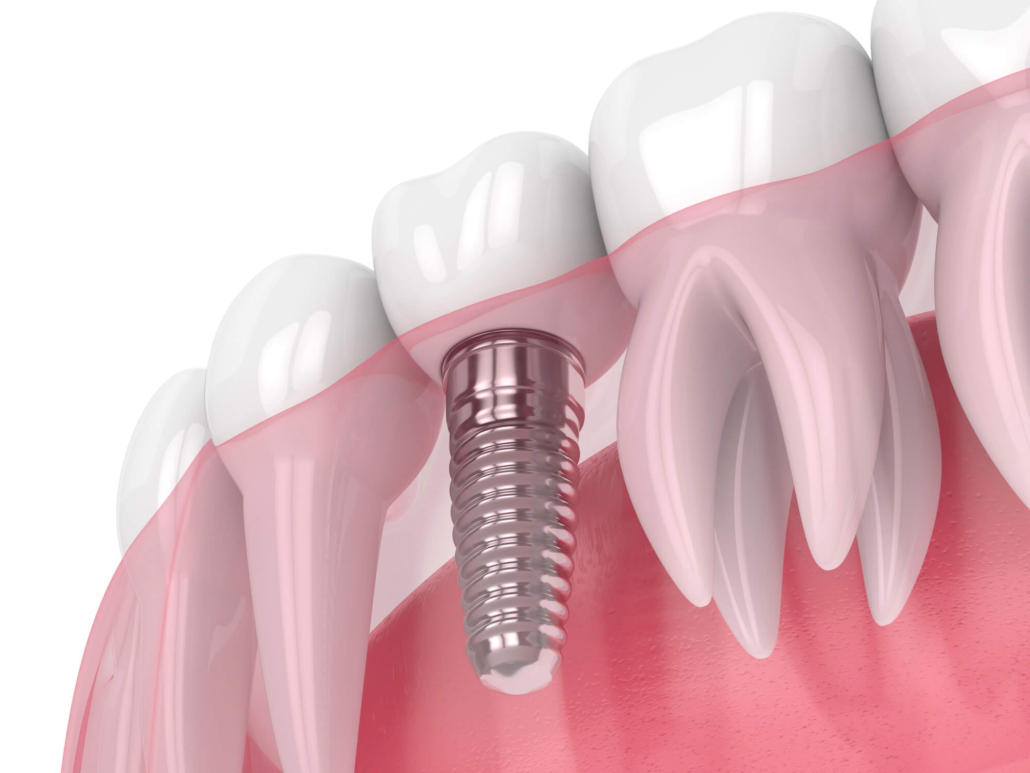Is Your Mouth Ready for Dental Implants? What to Know First
Thinking about getting dental implants? You’re not alone. Many adults are turning to implants as a reliable way to replace missing teeth and restore confidence in their smile. But not every mouth is ready from the start. Before you move ahead, it’s worth asking if your gums, jawbone, and habits support long-term success.
Patients looking into Hollywood dental care often wonder what makes someone a good candidate. Here’s what to consider before making your decision.

Why Implant Readiness Matters
Dental implants rely on a healthy foundation to stay strong and functional. This means your gums and jawbone need to be in good shape, and any existing dental issues should be addressed before placement. Skipping these steps can put your investment at risk and lead to complications down the line. Below are factors that determine if your mouth is ready.
1. Gum Health: The Base for Long-Term Success
Healthy gums are non-negotiable for dental implants. Inflammation, bleeding, or signs of gum disease need attention first. Gum infections affect healing and can lead to bone loss around the implant later.
Mild gum concerns may be managed with deep cleaning or localized treatments. More advanced cases might require periodontal therapy. Your periodontist will assess the condition of your gums and recommend a plan to restore health before implant placement.
2. Bone Volume: Is There Enough Support?
Dental implants act like artificial roots; just like natural roots, they need solid bone to stay anchored. If you’ve been missing a tooth for a while, some jawbone density has likely already been lost in that area. This is common and doesn’t automatically disqualify you from getting implants.
Your provider may suggest a bone graft to build up the area. This can be done before or at the same time as the implant surgery, depending on the amount of bone needed. Imaging scans help determine bone thickness and density.
The grafting process typically involves adding natural or synthetic bone material to strengthen the implant site. Healing from this step can take several months, but it lays the groundwork for long-term implant stability. In some cases, your periodontist may use platelet-rich plasma (PRP) to speed up recovery and promote healthy bone growth.
3. Oral Habits That Affect Implant Success
Certain daily habits can influence how well your implant heals and lasts. Smoking, for example, reduces blood flow and increases the risk of infection. If you smoke, quitting—at least during the healing process—is highly recommended.
Teeth grinding is another concern. The extra pressure it places on implants can cause them to loosen or fail. If you clench or grind your teeth, your dentist may recommend a nightguard to protect your new restoration.
Maintaining consistent oral hygiene is also essential. Brushing twice a day, flossing, and attending regular cleanings help reduce the risk of peri-implant issues. Implants may not decay like natural teeth, but plaque buildup and poor habits can still affect the surrounding gums and bone.
4. Pre-Existing Health Conditions
Your overall health plays a part, too. Conditions like diabetes or autoimmune disorders don’t automatically rule out dental implants. However, they can slow healing and increase the risk. Well-managed health conditions paired with good oral hygiene make success more likely.
Be sure to share your full medical history during your consultation. That helps your provider make informed decisions and suggest a treatment plan tailored to your needs. In some cases, we may recommend adjustments to medications or care routines to support better surgical outcomes.
5. Medications and Medical History
Certain medications, especially those that affect bone metabolism like bisphosphonates, may influence how your body heals around an implant. Let your dentist know about any prescriptions or supplements you’re taking, no matter how minor they seem.
Your medical team might coordinate with your physician to ensure you’re a good candidate. It’s always better to adjust plans before surgery than to deal with complications later. Timing procedures around your general health can greatly improve the predictability of implant healing.

6. Tooth Position and Bite Alignment
Sometimes, it’s not the health of your mouth that holds things up, but the spacing of your existing teeth. If nearby teeth have shifted into the empty space, there may not be enough room to place an implant. In some cases, orthodontic treatment or reshaping adjacent teeth can correct this.
Your bite also matters. If your upper and lower jaws don’t align well, it can affect how your implant functions. Bite analysis ensures your restoration won’t experience uneven force or wear. Minor corrections or splinting can help distribute pressure more evenly across your bite and reduce stress on the implant.
7. Previous Dental Work
Crowns, bridges, or older restorations near the implant site may need to be updated or adjusted. Your periodontist will evaluate how existing dental work interacts with the new implant plan. This helps avoid interference or future complications.
Careful planning around your past dental procedures ensures compatibility with your new restoration. In some cases, combining treatments into a staged plan may be the most effective path forward.
What to Expect at Your Implant Evaluation
During your consultation, your periodontist will review your medical history, assess your gum and bone health, and take detailed images of your mouth. You might undergo digital scans, X-rays, or a 3D cone beam CT to get a clear picture of your bone structure.
Expect your provider to evaluate your bite, check the position of adjacent teeth, and look for signs of inflammation or instability. This initial appointment is the best time to ask questions and clarify the next steps.
From there, a personalized treatment plan is created. Preparatory procedures like bone grafting or gum therapy will be scheduled first if they are needed. Some patients can go straight to implant placement, while others may need a few visits to get ready.
This planning stage is essential—it’s how you set yourself up for long-term implant success. The extra time spent preparing your mouth helps reduce risks and improve your outcome. Think of it as building a solid foundation for a strong, lasting result.
The Bottom Line: Don’t Rush the Process
Dental implants are a long-term investment. Making sure your mouth is ready before the procedure leads to fewer complications and better results. If any issues are found during your evaluation, they’re not a stop sign—they’re a chance to address concerns now so your implant lasts for years.

Looking for Expert Guidance in Hollywood Dental Care?
Dental implants require careful planning, expert evaluation, and follow-through care. At Broward Periodontics & Implant Dentistry, we take the time to assess your unique needs and build a treatment plan that sets you up for success. Whether you need bone grafting, periodontal therapy, or a complete exam before your implants, we’re here to help.
We proudly serve patients in Hollywood and surrounding South Florida communities. Book your consultation today and find out if your mouth is ready for dental implants.












